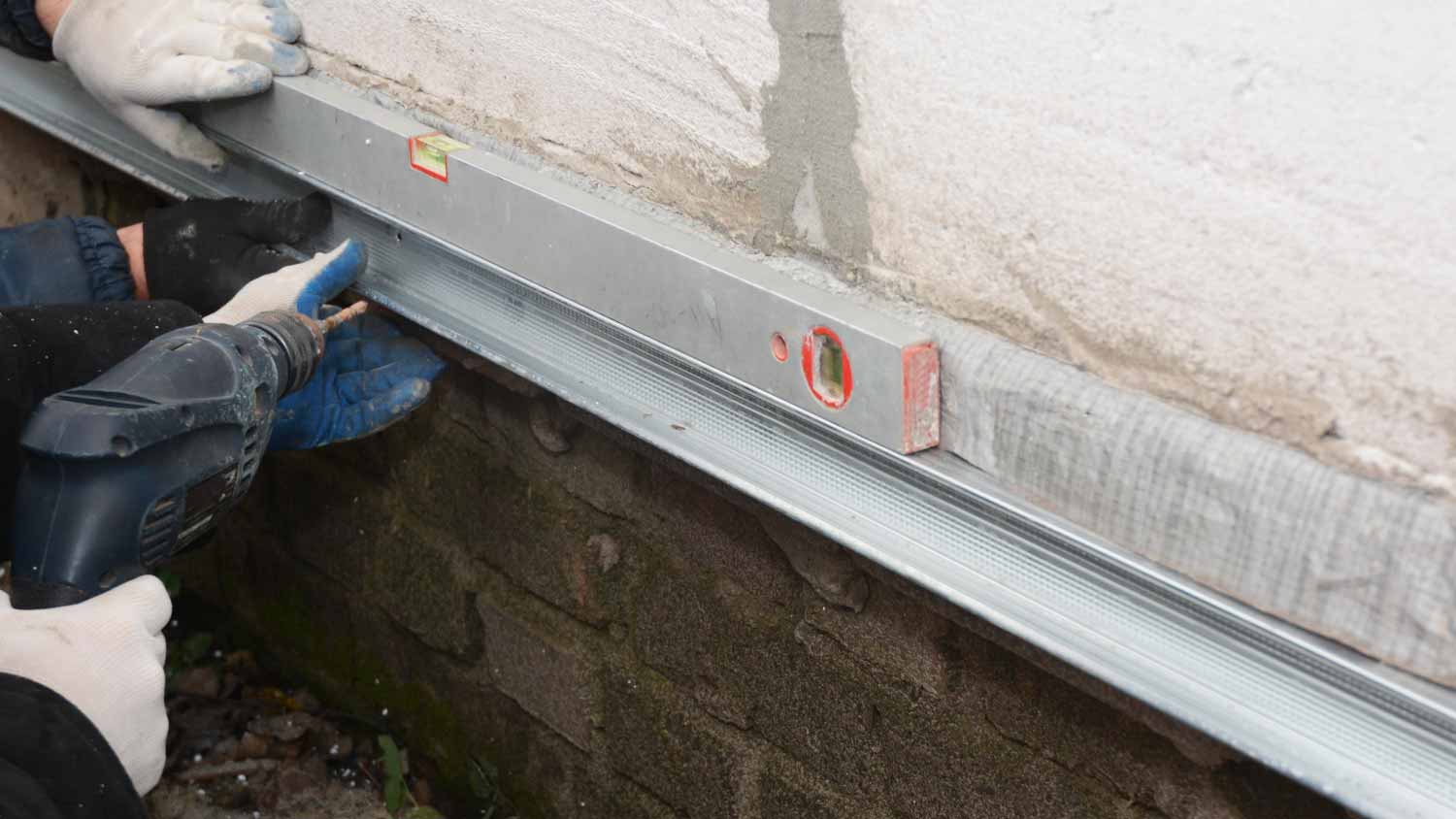Do You Need a Permit for Foundation Repair?
Minor foundation repairs won’t require a permit, but anything structural will


Minor foundation repairs like sealing cracks and some waterproofing methods don’t require permits.
Any repair that’s considered structural or involves excavation will require permits.
Failing to get necessary permits can result in violation fees, decreased home value, and project delays.
Building permits may seem like unnecessary red tape, but in the case of foundation repairs, they’re an important part of the repair process that can help ensure your home is safe after the work is done. In this guide, we’ll discuss whether or not you need a permit for foundation repair, why they’re so important, how much they cost, and more.
Do You Need a Permit for Foundation Repair?
Any foundation repair that’s considered structural in nature—like underpinning or mudjacking for your main structure—will require permits. More minor repairs—like sealing cracks to prevent water intrusion—won’t require permits. Your foundation contractor will be able to confirm whether or not you need permits, and they’ll often pull them for you if your project requires them.
You’ll also need a permit to pour concrete for a foundation, as this is considered structural work.
Which Foundation Repairs Will Require a Permit?

If you’ve already had a structural engineer or local foundation repair company determine what work your foundation requires, chances are they can let you know if you’ll need permits. If not, you can use the guide below to help you decide. Note that requirements can vary by location, so you should check with a professional or your local building department before proceeding.
| Requires Permit | No Permit Required |
|---|---|
| Beam replacement | Carbon fiber straps |
| French drain | Crack sealing |
| Mudjacking | Epoxy injection |
| Polyjacking | Re-shimming |
| Tieback install | Resurfacing |
| Underpinning | Waterproof paint |
Why Are Permits for Major Foundation Repairs Necessary?
Permits are an important part of major renovations and home repairs, including foundation repairs, because they ensure your contractor abides by building codes and does the work safely. Your building department will conduct one or more inspections before or after the contractor completes the repair and point out any issues with the quality of the work or the safety of the structure afterward.
If you fail to get the proper permits for your foundation repair, your building department can halt the work once it’s underway and cause major delays for your project, in which case you’ll have to get permits anyway. Getting them before the work begins can ensure your project is completed as quickly as possible.
Additionally, your building department can impose fees for completing work without a permit, which will drive up your foundation repair costs. Ultimately, you could end up saving money on the job by making sure your contractor pulls the necessary permits before they begin.
How Much Do Permits for Foundation Repair Cost?
Permits for foundation repair often cost between $50 and $200, depending on the work your contractor is doing. In the case of major structural repair, like for underpinning, your permit could climb above that number if it ends up being a percentage of the total repair cost. You can confirm permit costs with your contractor or building department before the work begins.
If your building department catches you or a contractor doing foundation work without proper permits, they will likely put the work on hold until you secure the necessary permits, which can cause delays of days or even weeks. You can also face violation charges for construction without a permit, which can cost hundreds, depending on where you live.
Most building departments will require that a certified and licensed foundation repair professional or a structural engineer pull permits for foundation repair, so homeowners usually cannot pull them themselves. This helps ensure that an experienced professional completes all structural work on your home. Minor repairs that are technically DIYable often won’t require permits, but it’s still a good idea to hire a professional to carry out foundation repairs.
Foundation repair can affect home value positively or negatively. If you address the underlying issue and hire a foundation repair contractor to complete the work—especially one that includes a warranty for the work—then your repair will likely increase your home’s value. If you fail to pull proper permits and cannot prove that a licensed expert completed the work, there’s a chance buyers will view your home in a negative light and end up offering less for your property.















